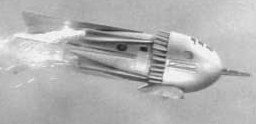Ah, well, not quite so.Or, I should say, did hold true for Traveller until Mongoose stepped in and started changing the universe and mythos.
TNE's Fire, Fusion & Steel had Cold Fusion, Dean Drives, Psionic Transfer Dri-
ves and a couple of other options that are at least as far away from hard
science as any of the options of Mongoose Traveller, and I know quite a
lot of similar stuff from other versions of Traveller.
Most Traveller authors have attempted to stay close to the original idea of
hard science and Golden Age SF feeling, but some have failed spectacular-
ly - and long before Mongoose ever thought of publishing Traveller.


